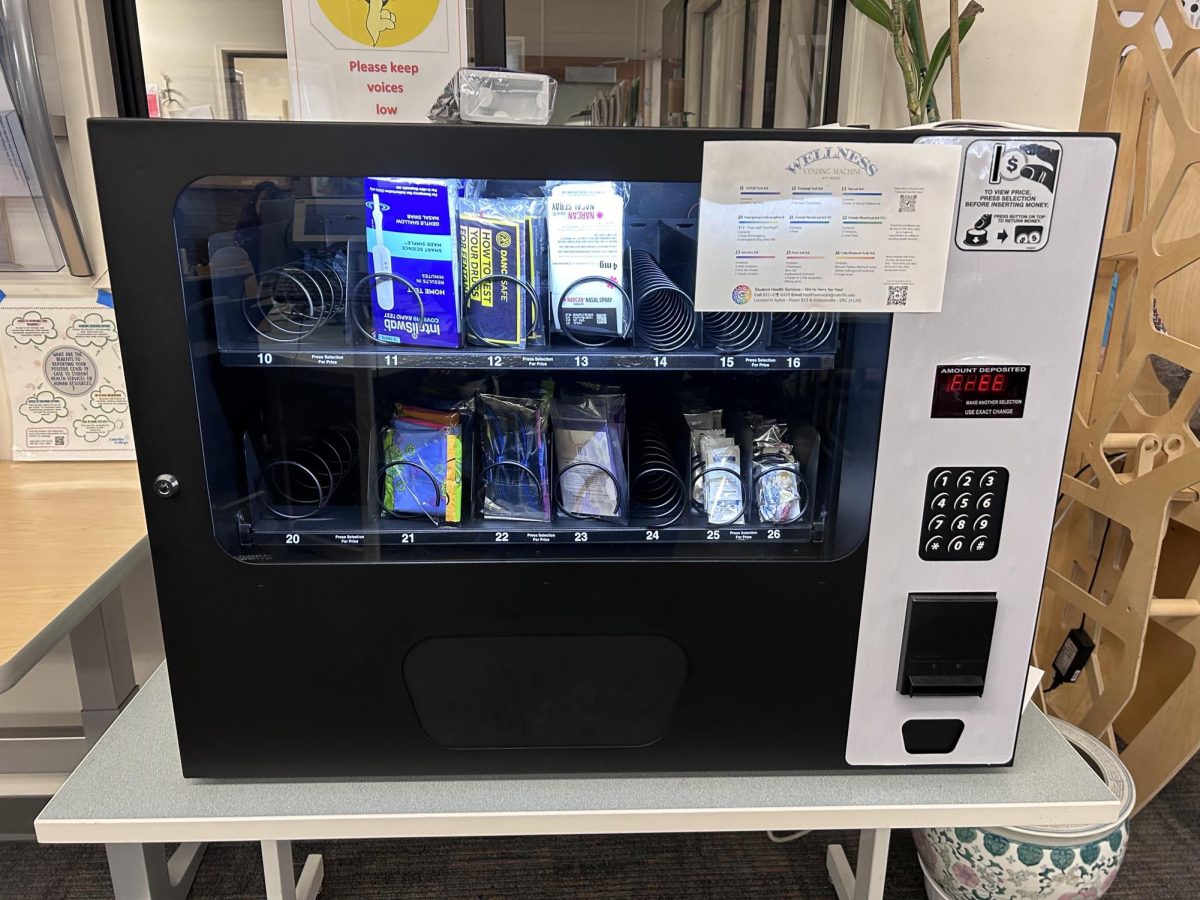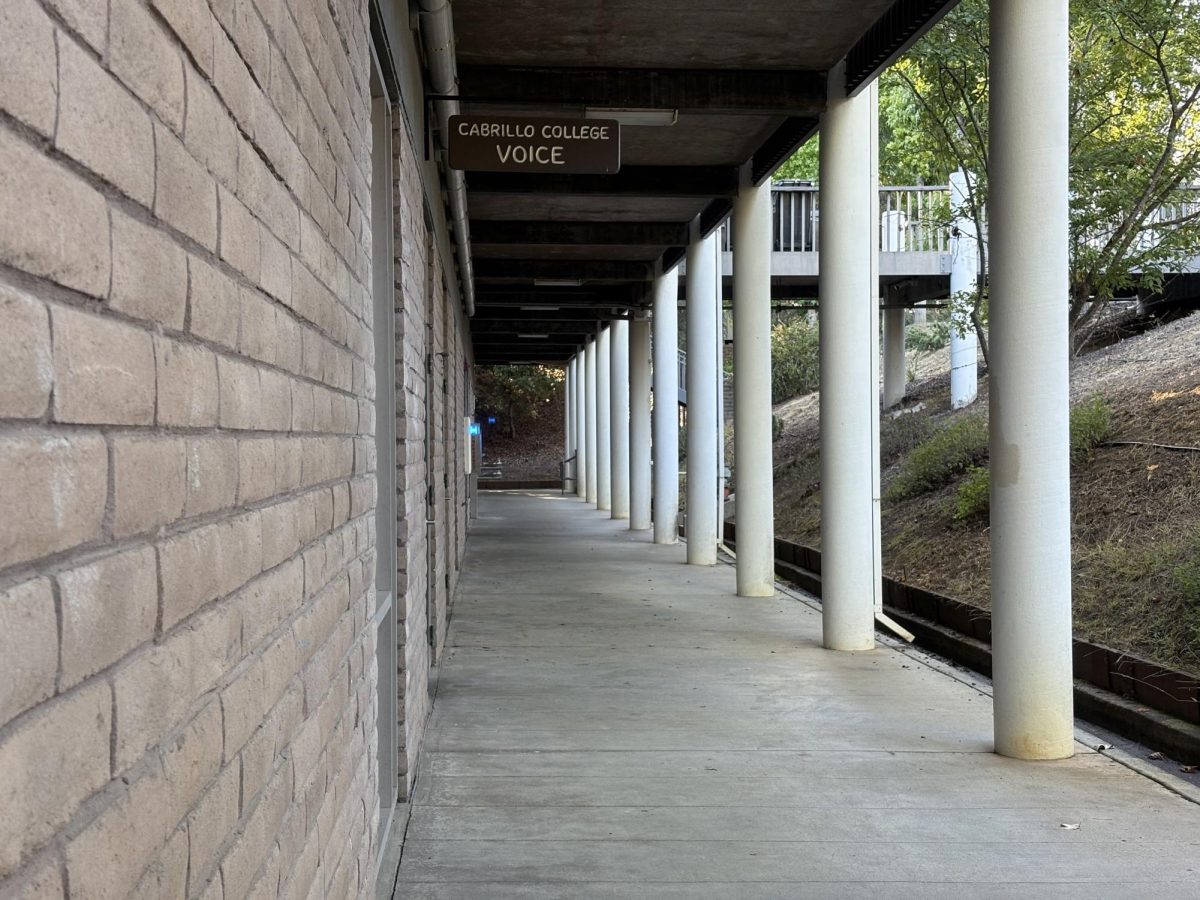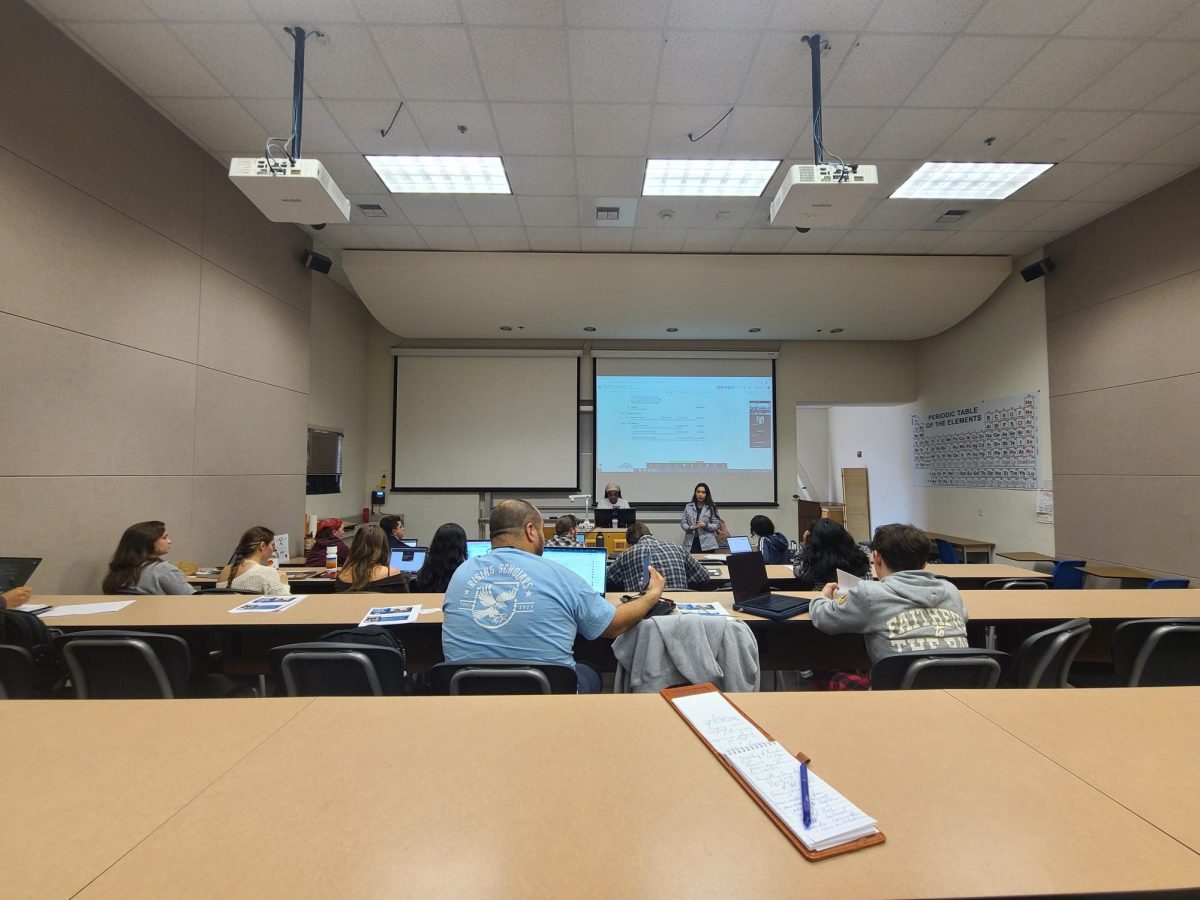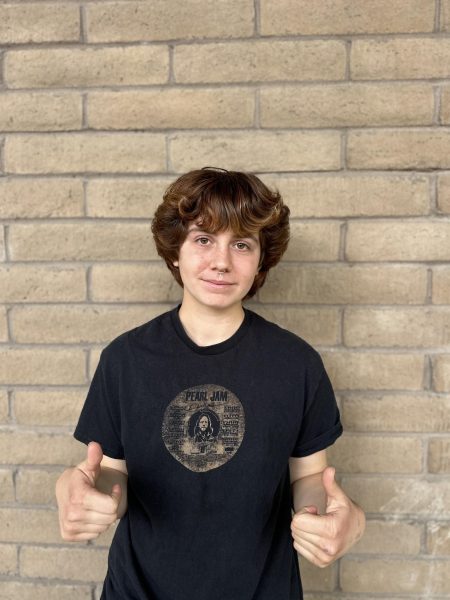The new vending machines on campus this semester are not for snacks – they’re for condoms.
Instead, the Student Health Services is offering items like contraceptives, Narcan, ibuprofen, cough drops and COVID tests in its vending machines for free, as well as morning-after pills for purchase. The machines are located at the CTC on the Aptos campus and on the third floor of the Watsonville campus.
“It’s been about a year in the works, from the submission of the grant to receiving the vending machines,” said Claudia Peixoto, the student outreach and wellness coordinator. “It’s really a student health services project, and it’s coming from the clinic for the students.”
According to Peixoto, the idea of the wellness vending machines came from other California universities and colleges receiving grants and using those funds to create their own vending machines.
“This is being done around many university campuses, so the California Community College Association brought the grant opportunity to the community colleges to apply for, and so we were chosen as one of those,” she said.
The vending machines are a way to make the items from the student health services offices even more accessible to the students and the community, with the majority of the items being free for students.
A recent survey was put out to see what students on both Aptos and Watsonville campuses would like to see in the vending machines, and all items will be stocked with some being updated based on overall student needs. These items will remain available to students in the health services office as well.
Items in the machines will be regularly restocked and updated depending on what the students are taking the most. And they aren’t just for students- the vending machines are open to anyone in the community who needs them.
Another purpose of the wellness vending machines is to reduce the stigma around accessing certain items being made available and to make sure students can be safe without worrying about said stigma.
“It can sometimes be difficult, whether it’s just a means of financially accessing them or stigma around them. We really hope that this will allow students to have a place to get those items and stay safe, as well as reduce harm to themselves and others in a way that’s accessible and equitable,” Peixoto said.








